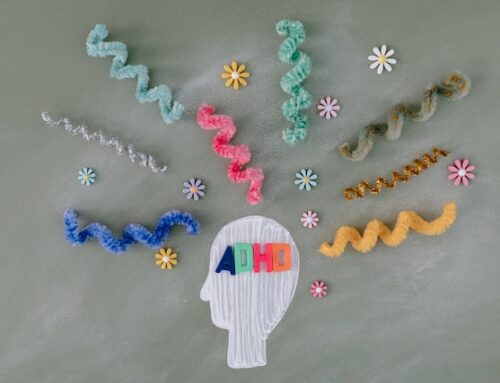Most people hear ADHD and automatically think of children and teenagers first. They think of the child who can’t sit still or pay attention and generally performs poorly in school. Then, magically, after they hit their teenage years, the symptoms of ADHD disappear. If only it were that easy.
The truth is that adults can also struggle with ADHD symptoms. That can be surprising to hear, considering ADHD is so widely recognized as impacting youth.
Adults who have ADHD face many challenges with their work and personal lives, as well as their relationships with other people. But how can ADHD get diagnosed much later in life?
Adult ADHD: How It Can Fly Under the Radar & Why
Lack of Knowledge
One of the main reasons adults aren’t diagnosed with ADHD is that in childhood, their caregivers or parents might not have recognized the signs.
ADHD can present differently in boys than it does in girls. Most often, ADHD is associated with children being restless, unable to sit still, and having boundless energy. Boys, more often, present with those signs. Girls, on the other hand, will present with symptoms such as inattentiveness, talking a lot, and daydreaming a lot. Those are all symptoms of ADHD, but they aren’t paid attention to as much as the more common ones.
Adults Experience More Stress
We won’t say children and teens don’t experience stress because they do. However, adults often have more responsibilities than youth. Between work, finances, household duties, social obligations, raising families, and so much more…adults balance a lot.
Stress and anxiety are often a catalyst for other mental health conditions to manifest. There’s a good chance that in childhood, the ADHD symptoms were better managed. Or, they flew under the radar because it was chalked up to “growing pains” or something similar.
 ADHD in Adults: Symptoms
ADHD in Adults: Symptoms
Let’s get one thing out of the way. Individuals who are diagnosed later with ADHD have likely always had the disorder. Very rarely will an adult develop ADHD out of nowhere in adulthood. According to the National Institute of Mental Health, adults with ADHD likely “experienced several symptoms of ADHD before the age of 12.”
There are three main categories of symptoms with ADHD that adults experience — inattention, hyperactivity, and impulsivity. Some people will only experience one category of symptoms, while others may have a combination.
Signs of Inattention
- Difficulties with attention to details
- Making careless mistakes
- Unable to focus on tasks for an extended period of time
- Challenges with listening closely when spoken to
- Difficulties with staying organized
- Poor time management
- Losing things easily
- Forgetfulness
- Easily distracted by external factors or thoughts
Signs of Hyperactivity and Impulsivity
- Extreme restlessness
- Fidgeting
- Excessive talking
- Interrupting others in conversation
In addition to these symptoms, individuals with ADHD may also experience other mental health conditions, such as anxiety or depression.
How Is ADHD Diagnosed?
There are no individual tests that can diagnose ADHD. Adults who believe they might have ADHD must have experienced at least five continuous symptoms of inattention, hyperactivity/impulsivity, or a combination. Additionally, these symptoms must be present in at least two areas of their life, such as work, school, home, or in relationships to the point that they interfere with the health of any of these things.
ADHD is often diagnosed by completing a variety of evaluations and history intakes with licensed professionals, such as a primary care doctor or a psychologist/psychiatrist.
How Is ADHD Treated?
There is no, “one-size fits all” treatment for ADHD. ADHD treatment is often tailored to the individual. The most successful ways to treat ADHD are through a combination of medication, lifestyle changes, coping mechanism skills, and therapy.
While a therapist cannot diagnose someone with ADHD, we can help or clients learn to live with it as well as manage it better. If you are interested in learning more about ADHD treatment and how I can help, feel free to reach out.




